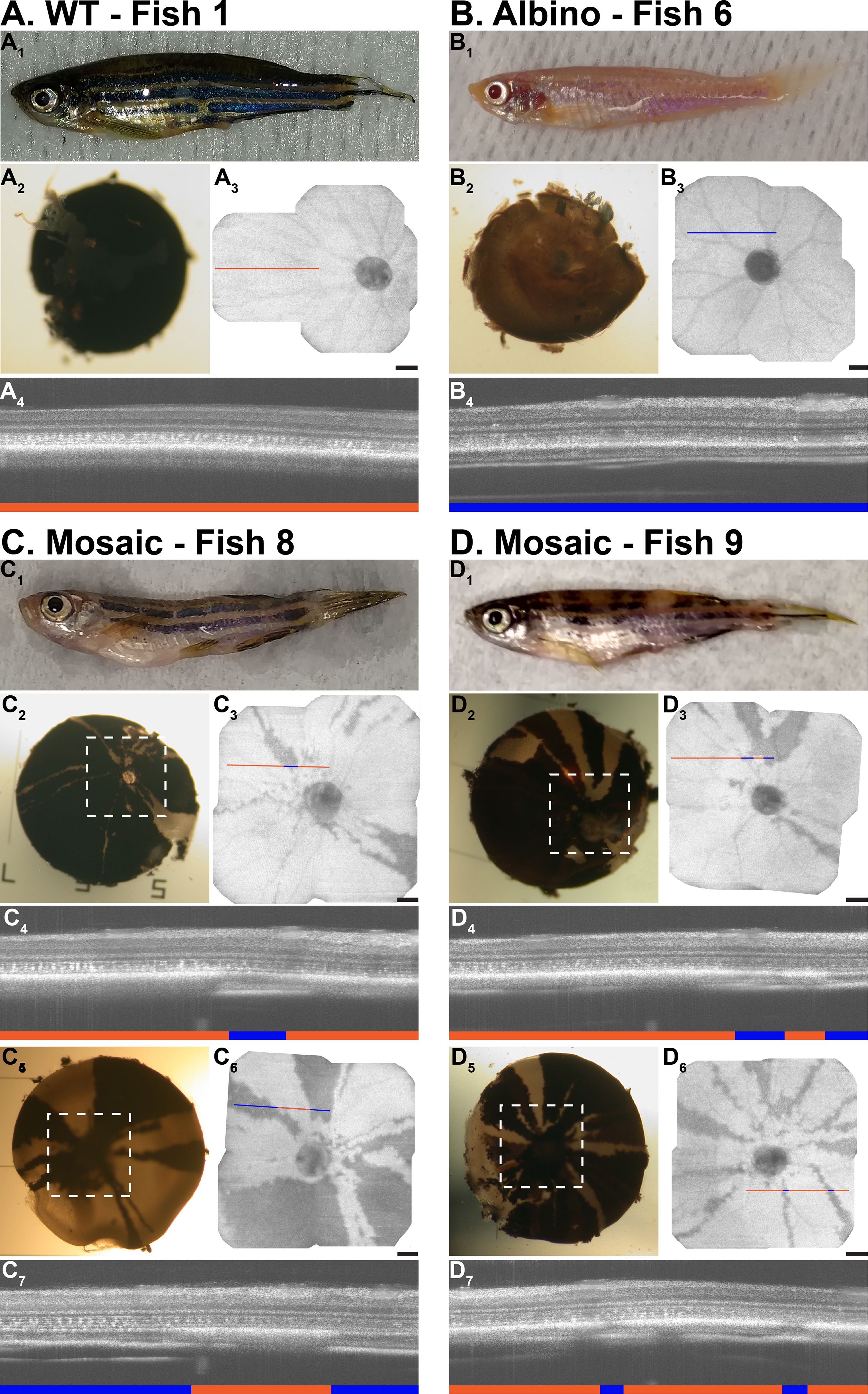Fig. 3
Pigmentation patterns of zebrafish strains. (A) WT zebrafish. (A1) External pigmentation of normal zebrafish. (A2) Ex vivo, posterior view of the normal eyecup. (A3) En face OCT image from the same retina as (A2). (A4) In vivo cross-section of the retina at the location indicated by the orange line in (A3). (B) Albino zebrafish. (B1) External pigmentation of albino zebrafish. (B2) Ex vivo, posterior view of the albino eyecup. (B3) En face OCT image from the same retina as (B2). (B4) In vivo cross-section of the retina at the location indicated by the blue line in (B3). (C–D) Two examples of mosaic zebrafish with unique pigmentation patterns. (C1, D1) External pigmentation of mosaic zebrafish. Retinal images from the right eyes (C2–C4, D2–D4) and left eyes (C5–C7, D5–D7) of two mosaic zebrafish. Posterior eyecups and en face OCT images show identical pigmentation patterns. Dashed white boxes on the eyecup denote the approximate location of the corresponding en face OCT images. For all fish, lines overlaid on the en face OCT mark the location of the B-scans below. Orange lines mark locations of melanin pigment while blue lines denote no pigment. Areas of pigment display bright RPE bands while areas lacking pigment have reduced RPE reflectance. The choroid and sclera are more visible in areas lacking pigment. Scale bars: 100 μm. All B-scans are 475 μm wide and tall and are displayed in the logarithmic format.

